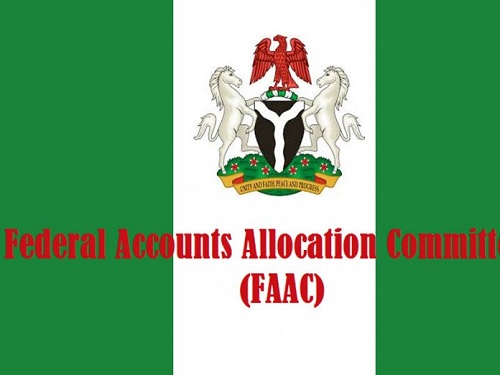The Federation Account Allocation Committee (FAAC) is about to share N1.959 trillion being revenue generated in June 2023 among the Federal, State and Local Governments on Thursday.
The technical and plenary meetings of the FAAC will be held on Thursday to formally approve the amount that will go to the federal government, state and local governments.
According to reports, “statutory collections make up N1.7 trillion of the federally collected revenues, followed by N293 billion from Value Added Tax (VAT) and N12 billion from electronic money transfer charges.
Senior Special Assistant Media and Publicity to the President, Temitope Ajayi while reacting to the development said, “that FAAC will share almost N2trillion in July, the first time in history, as revenue for the three tiers of government, is an immediate and major benefit of fuel subsidy removal.
“This money that would have been frettered away, in a month, via fuel subsidy will now go into the coffers of government to improve living conditions of the people. What this means is that there will now be more money available for real development.
He noted that “States and Local Governments will have enough money to pay salaries of workers and pensioners.
“Government at all levels will become more solvent, be in a stronger financial position to easily pay new minimum wage and fund development in critical sectors especially in education, healthcare and public transportation.
Going forward, Nigerians he said should “begin to focus attention on our states and local governments to demand more accountability and transparency in the use of public fund. The real governance impact should be at the State and local levels.”
Speaking to issue as well, Professor Uche Uwaleke of Nasarawa State University described the amount to be shared tomorrow as a “remarkable increase in FAAC Allocation”.
However he noted that for proper accountability and transparency of the funds utilisation, it is necessary to “ascertain from the FAAC Allocation the proportion of the increase in funds resulting from the naira devaluation; ring fence the funds by creating a special accounts for them and obtain approval from the National/State Assemblies as the case may be to apply them to special projects in education, health and infrastructure provision.
Such funds he added “should not be used to implement increase in minimum wage or applied to recurrent expenditure.
“All tiers of government should endeavour to increase workers’ salaries through reducing wastes and cost of governance as well as plugging loopholes in revenue collection leveraging technology



